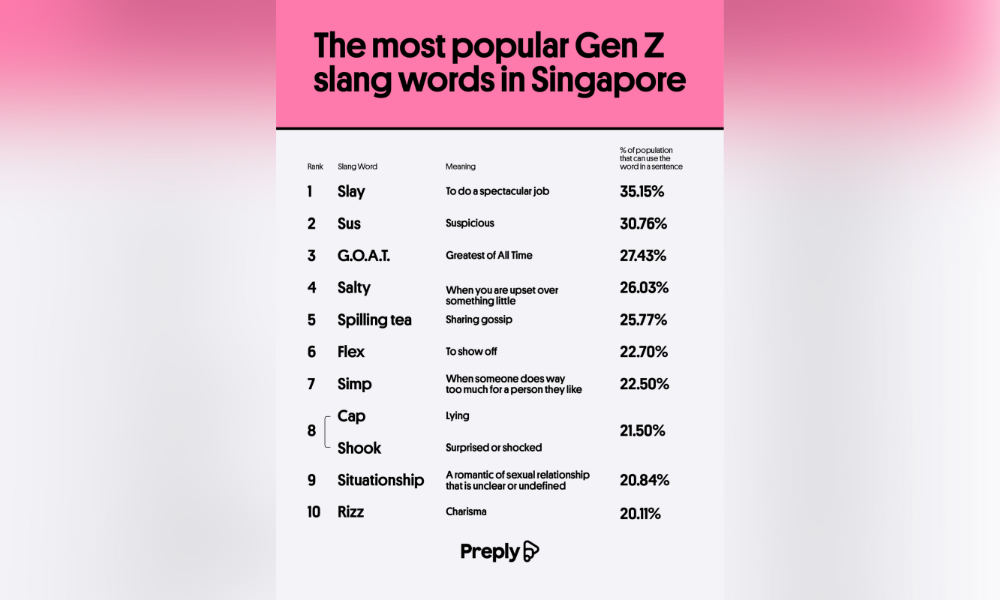
Most Singaporeans use slang in the workplace – but many also disapprove

A majority of employees in Singapore have confessed they use slang at work, despite thinking it's not appropriate in an office environment.
This is according to new research from Preply, which surveyed 1,500 Singaporeans, to determine the usage and perceptions towards slang in Singapore.
It found that 85% of people use slang at work, but only 16% do it often.
Among those using it, 47% said they use it with co-workers. In fact, 34% said they learned slang from a colleague. Only 12% said they would use slang in front of their boss.
Despite the widespread use, 74% of the respondents also believe using slang is inappropriate in an office environment.
Only 26% of the respondents said it is appropriate to use slang at work, while a smaller of respondents said it's okay to use in emails (9%) and during a job interview (8%).
Overall, 95% of Singaporeans use slang in some capacity, particularly Singapore-English (Singlish) slang. Another 70% said they use global Gen Z slang as well.
Slang is mostly popular with younger respondents, the report found. Among those between ages 16 and 24, 36% they use Singlish slang in most conversations, while 32% said they use global Gen Z slang.
A small portion of expats (15%) said they also use slang to fit in Singapore, according to the report, which underscored the importance of language when moving to a new place.
"While attitudes towards slang may vary across settings and generations, there's no denying it has an important role in language and culture," said Sylvia Johnson, language expert at Preply, in a statement.
"Getting up to speed on the local slang is a big part of learning a language and fitting in with the locals. It demonstrates not just linguistic competence but also cultural sensitivity."
The widespread use of slang is attributed to communication, according to the report, as 35% said they use it to communicate quickly. Other reasons include:
According to the report, the most popular Singlish words in Singapore include Alamak (65.78%) and Makan (60.98%). The whole list includes:

Image from Preply
On the other hand, the most popular global Gen Z slang words include slay (35.15) and sus (30.76%). The whole list includes:

Image from Preply
Johnson, however, warned users of slang to ensure that the words are being used correctly, as the report found that 65% use the words without knowing what they mean.
Not a lot of people are also fans of slang, as the report found that Singaporeans believe those using slang are cringy (15%), trying too hard (14%), and lazy (12%).
They're particularly annoyed by the use of slang words such as slay (12.72%), purr (11.78%), zaddy (10.52%), bussin (10.19%), and yeet (9.99%).
"However, a word of caution, as each phrase carries cultural nuances that are, at times, elusive to outsiders. It's a delicate dance – when done right, it creates connections; when done wrong, it raises eyebrows," Johnson said.